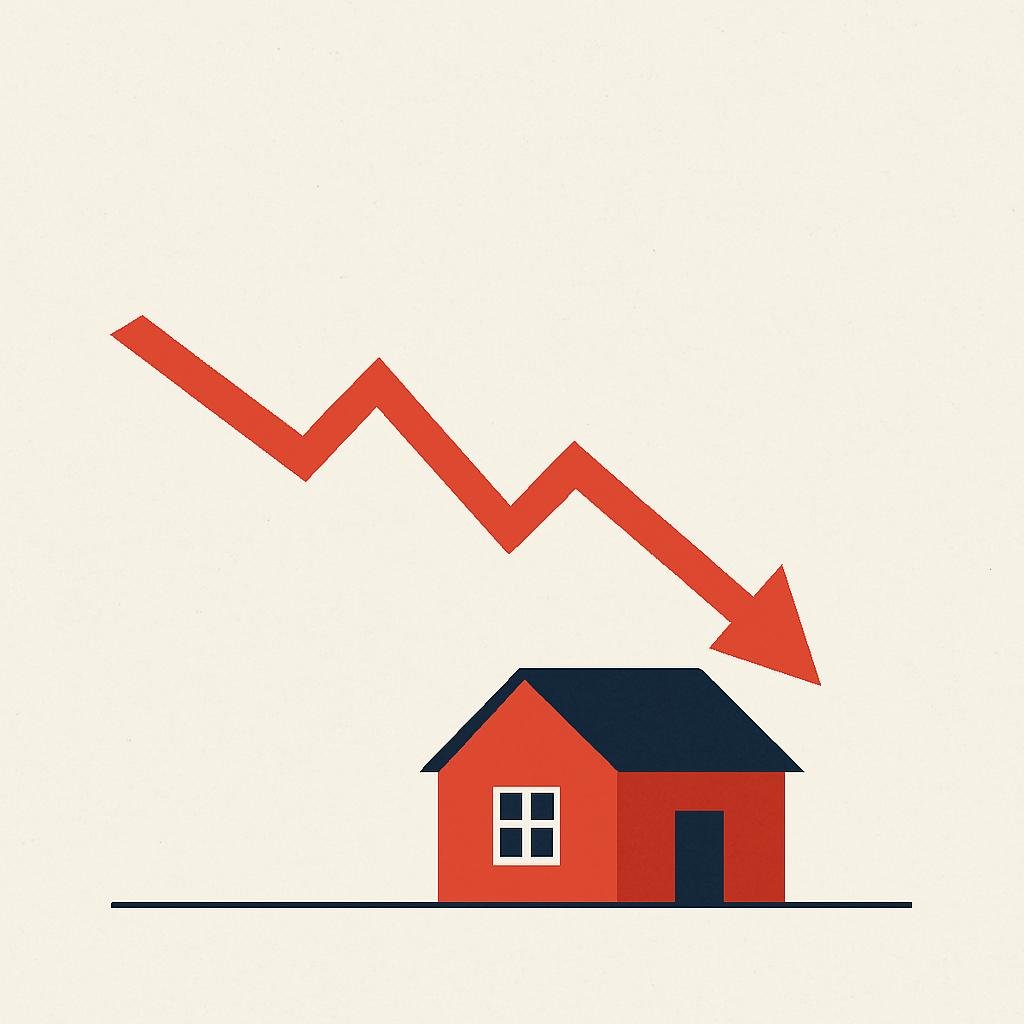Everywhere you turn lately—news headlines, podcasts, even conversations at the coffee shop—people are talking about a possible recession. It’s understandable. Economic uncertainty affects everyone in different ways, especially when it comes to real estate.
But here’s the thing: a recession does not automatically mean home prices are going to drop.
Let’s talk about it—what’s different about today’s market, what history actually shows us, and what it all means if you’re thinking about buying or selling.
First Things First: Recession ≠ Housing Crash
When people hear the word “recession,” their minds often jump straight to 2008—the housing crash that rocked the U.S. economy. But here’s the truth: 2008 was the exception, not the rule.
Looking back at the last six recessions (prior to 2020), home prices actually went up in four of them. That’s right—up.
-
In the early 1980s and again in 2001, for example, housing values didn’t plummet—they appreciated.
-
According to data from Brenda Fontaine, recessions often create economic slowdowns, but they don’t always bring housing prices down with them.
So why does everyone associate recessions with falling home values? It’s largely because of the lasting memory of 2008. But let’s clear that up…
Why 2008 Was So Different
The 2008 housing crisis was fueled by a perfect storm of bad lending practices, loose credit, and a massive housing bubble.
People with little-to-no income or documentation were given mortgages they couldn’t afford, adjustable-rate loans reset to impossible payments, and when the music stopped—foreclosures swept the nation.
Fast forward to today, and it’s a different world:
-
Lending standards are tighter.
-
Buyers are more qualified.
-
Inventory remains historically low.
This isn’t a market built on quicksand like 2008—it’s built on solid ground.
Today’s Economy: A Different Kind of Challenge
Yes, there are economic concerns. But the root causes are different:
-
Inflation.
-
Global uncertainty.
-
Supply chain issues.
-
Rising interest rates to combat inflation.
As Axios put it in this piece, today’s worries are not coming from the housing sector—they’re coming from the broader economy. That’s a key distinction.
Unlike 2008, homeowners aren’t overleveraged, and there isn’t a wave of foreclosures looming. In fact, homeowners today have more equity than ever before, and that’s a powerful cushion.
Will Home Prices Fall? Not Likely. Here’s Why.
With so many people priced out of the market the past few years, there’s been a slowdown in activity—but not a collapse. And here’s what’s keeping prices relatively stable:
-
Low Inventory: There simply aren’t enough homes on the market to meet demand.
-
Stronger Buyer Profiles: Today’s buyers are better positioned financially.
-
Homeowners Aren’t Desperate: Most aren’t upside-down on their mortgages, and they’re not racing to sell.
The market might cool in some areas or price brackets, but a dramatic nationwide drop? Highly unlikely.
So… What Should Buyers and Sellers Do?
If you’re a buyer worried about timing the market—here’s some perspective: waiting for prices to crash may leave you sitting on the sidelines for a long time. Plus, if interest rates drop, demand will surge again, pushing prices back up.
If you’re a seller—know that there’s still strong interest in well-priced, move-in-ready homes. It’s not the red-hot frenzy of 2021, but it’s still a great market if you’ve got a good strategy.
Final Thoughts
The takeaway? Not all recessions are created equal. And they don’t all spell disaster for the housing market.
Here at Modern Heart Realty, we believe in looking at the facts, not the fear. Whether you’re buying your first home, investing, or thinking about selling, we’re here to guide you with clarity and confidence.
Have questions? Let’s chat.
📍 Modern Heart Realty — Real people. Real guidance. Real results.

